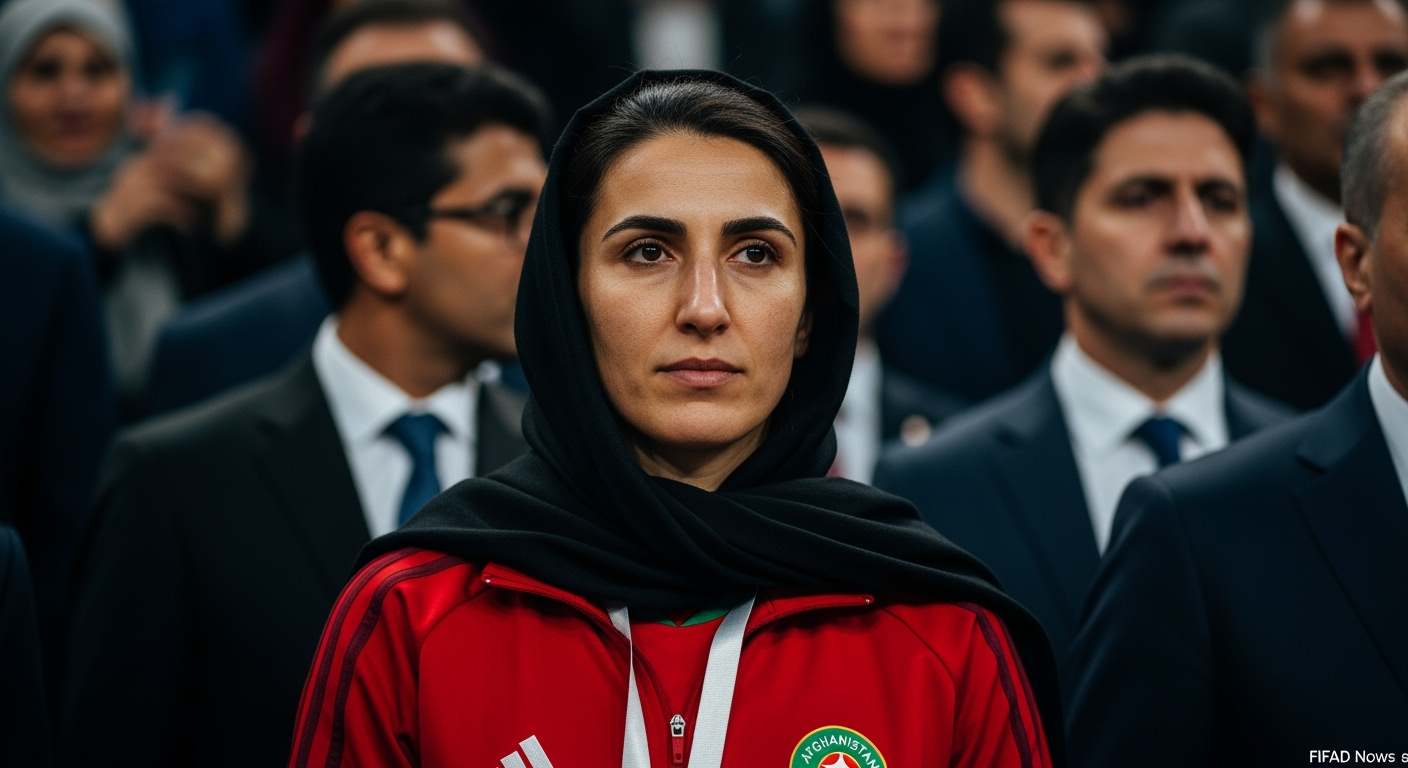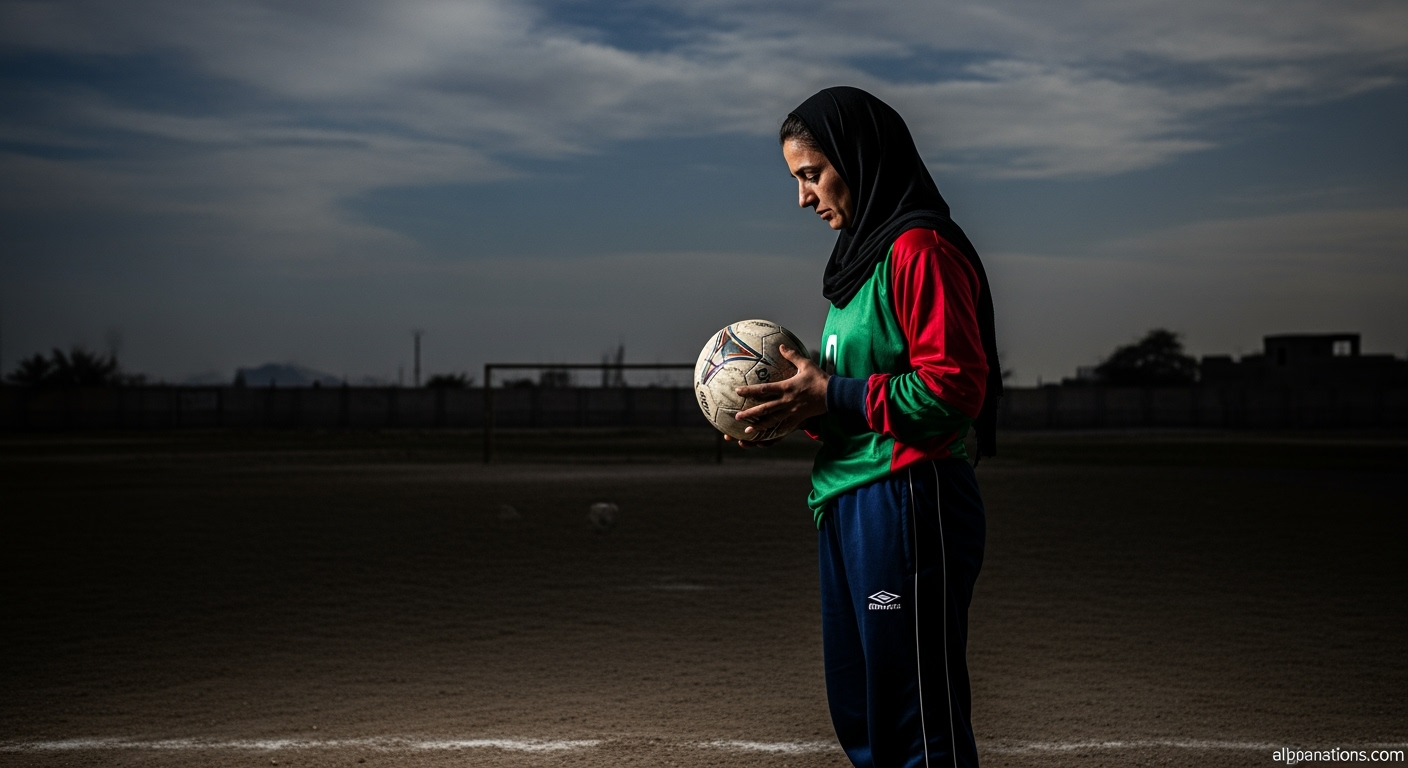Related Articles

Afghan Women's Football Team Forges Historic Path Back to International Arena After Years of Exile




LAUSANNE, SWITZERLAND – Israeli gymnasts will be barred from competing in the upcoming Artistic Gymnastics World Championships in Jakarta, Indonesia, after the Court of Arbitration for Sport (CAS) rejected two urgent appeals filed by the Israel Gymnastics Federation (IGF). The decision, handed down on Tuesday, Oct. 14, 2025, effectively upholds Indonesia's refusal to grant visas to the Israeli delegation, citing the host nation's solidarity with Palestinians. This ruling marks a significant blow to the athletes, including Olympic gold medalist Artem Dolgopyat, and underscores the ongoing intersection of geopolitics and international sports.
The controversy erupted following Indonesia’s announcement that it would not issue entry visas to Israeli participants for the championships, scheduled to run from Oct. 19 to 25. Indonesian authorities referenced their country's long-standing policy of no formal diplomatic ties with Israel and cited "intense opposition" and "public protests" within the world's most populous Muslim-majority nation as factors in their decision. This denial of entry forced the IGF to seek intervention from the highest court in sports, alleging discrimination and a violation of international sporting principles.
The roots of the current dispute lie in Indonesia's steadfast support for the Palestinian cause, a position that has historically led to a reluctance to host Israeli sports delegations. Despite assurances reportedly given to the Israeli federation in July that its athletes would be welcomed, Indonesia's government ultimately reversed course. This move was formalized last Thursday, when Indonesian authorities publicly stated their refusal to grant visas, a decision influenced by domestic political and social sentiment. The humanitarian toll of the war in Gaza was cited as a contributing factor to the heightened opposition within Indonesia, demonstrating how global conflicts can ripple into the athletic arena.
The International Gymnastics Federation (FIG) responded to Indonesia’s decision by "taking note" of the situation and acknowledging the challenges faced by the host country. However, the FIG did not threaten to withdraw the event from Jakarta, a measure that its own statutes stipulate for cases where a host country refuses visas to eligible participants. This stance by the FIG became a central point of contention in the subsequent legal battle.
In response to the visa denials and the FIG's position, the Israel Gymnastics Federation lodged two appeals with CAS. The first appeal sought the annulment of the FIG's statement that merely "takes note" of Indonesia's decision, arguing that it fell short of protecting the rights of the Israeli athletes. The IGF contended that the FIG's obligation extended to ensuring fair participation for all registered nations.
The second, and arguably more critical, appeal was filed by the IGF alongside six gymnasts who were slated to compete. This appeal requested CAS to implement "provisional measures" that would either guarantee Israeli participation in the championships or, failing that, compel the FIG to move or cancel the entire event. The Israeli federation emphasized that the denial of entry constituted "a situation of discrimination" against its athletes. Olympic gold medalist Artem Dolgopyat, a prominent figure in the Israeli team and a defending world champion in men's floor exercise, was among those directly affected, highlighting the individual impact of the political decision.
The Court of Arbitration for Sport, based in Lausanne, Switzerland, carefully considered the urgent requests. Its Deputy President of the Appeals Arbitration Division ultimately rejected both of the IGF's applications for "urgent provisional measures." In its reasoning, CAS noted that the FIG had argued it possessed no jurisdiction to compel the Indonesian government to issue visas, nor could it force a change in the host nation's immigration policies. The CAS decision effectively acknowledged the sovereign right of Indonesia to control its borders and immigration, even when such decisions directly impact international sporting events. The court ruled that it could not mandate the FIG to ensure Israeli participation or to relocate or cancel the championships.
This outcome means that the Artistic Gymnastics World Championships will proceed in Jakarta as planned, but without the Israeli delegation. The rejection by CAS is considered final for these urgent provisional measures, although reports suggest that a deeper review of the case might still be possible, time being of the essence given the championship's imminent start.
The exclusion of Israeli gymnasts from the Jakarta championships is not an isolated incident. Indonesia has a recent history of denying entry to Israeli athletes, leading to significant repercussions for its own standing in international sports. In March 2023, Indonesia lost its hosting rights for the FIFA Under-20 World Cup after two provincial governors objected to Israel's participation. Similarly, in July 2023, Indonesia withdrew from hosting the Association of National Olympic Committees (ANOC) World Beach Games due to controversy surrounding Israel's presence. These repeated incidents underscore a persistent challenge for international sports bodies operating in politically sensitive regions.
While Indonesian law allows Israeli nationals to apply for short-term visas under a "calling visa" procedure or to enter with dual passports, these pathways were not applied to the sports delegation in this specific context. The consistent pattern of exclusion highlights the complex interplay between national political identity, international sporting ethics, and the aspirations of individual athletes caught in geopolitical crosscurrents.
The CAS decision to reject the appeals by the Israel Gymnastics Federation leaves Israeli gymnasts, including world-renowned talents, unable to compete on one of the sport's biggest stages. This outcome serves as a stark reminder of how political differences can permeate the supposedly apolitical realm of international athletics, sidelining athletes who have dedicated their lives to their sport. While international federations often advocate for the principle of universal participation, the practical realities of national sovereignty and geopolitical tensions continue to present formidable obstacles. The case of the Israeli gymnasts in Jakarta illustrates the profound challenges faced when host nations prioritize political solidarity over the inclusive ethos of global sporting events.